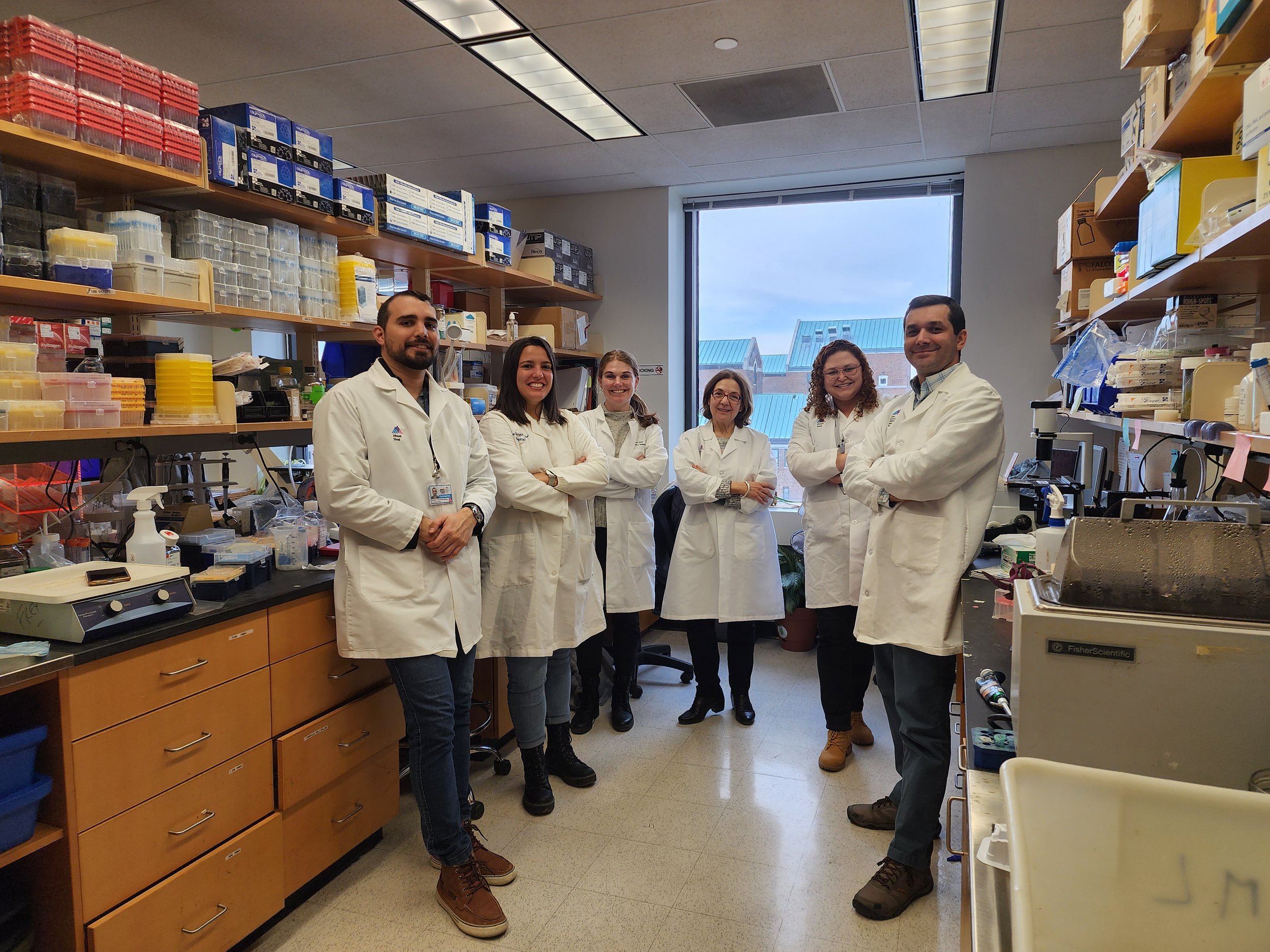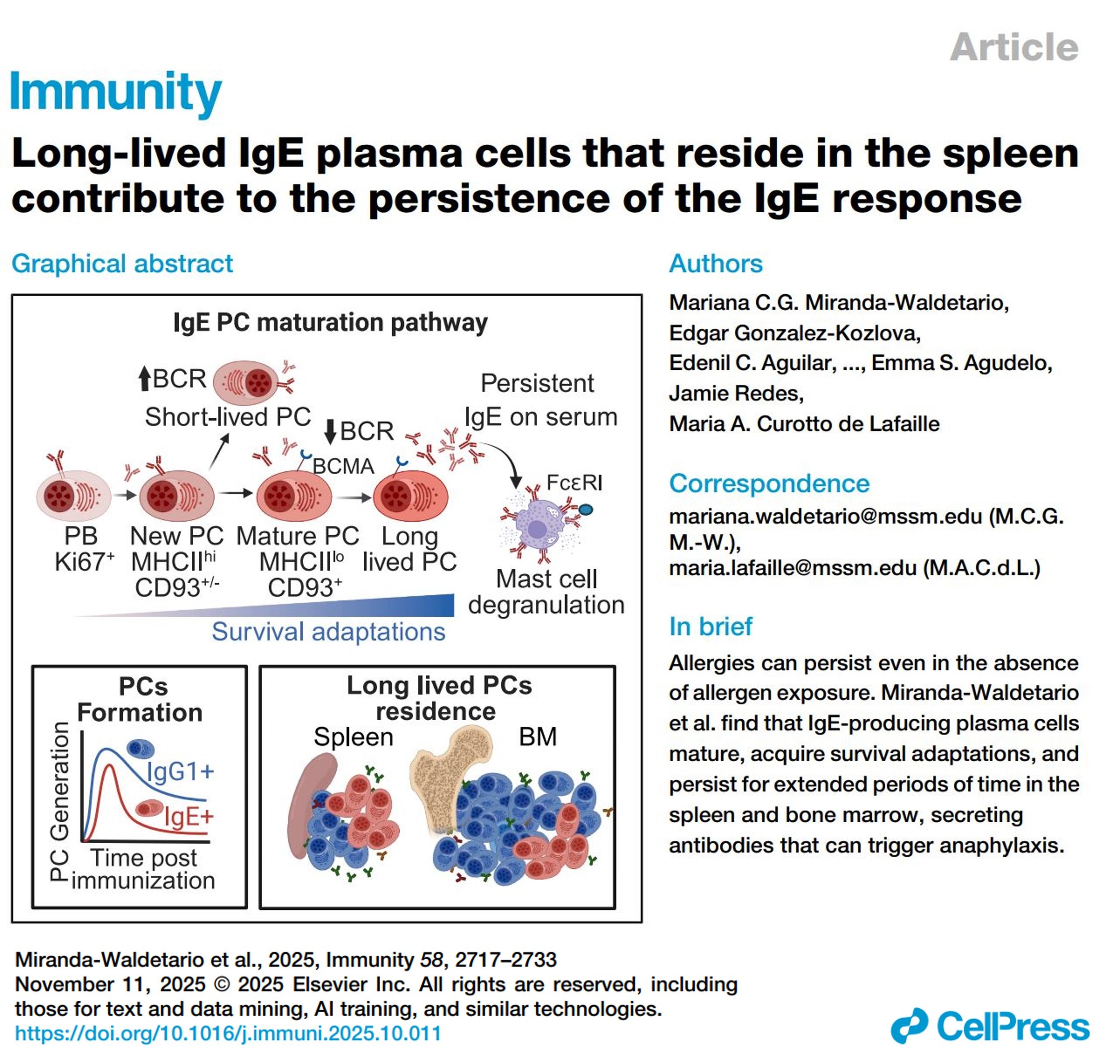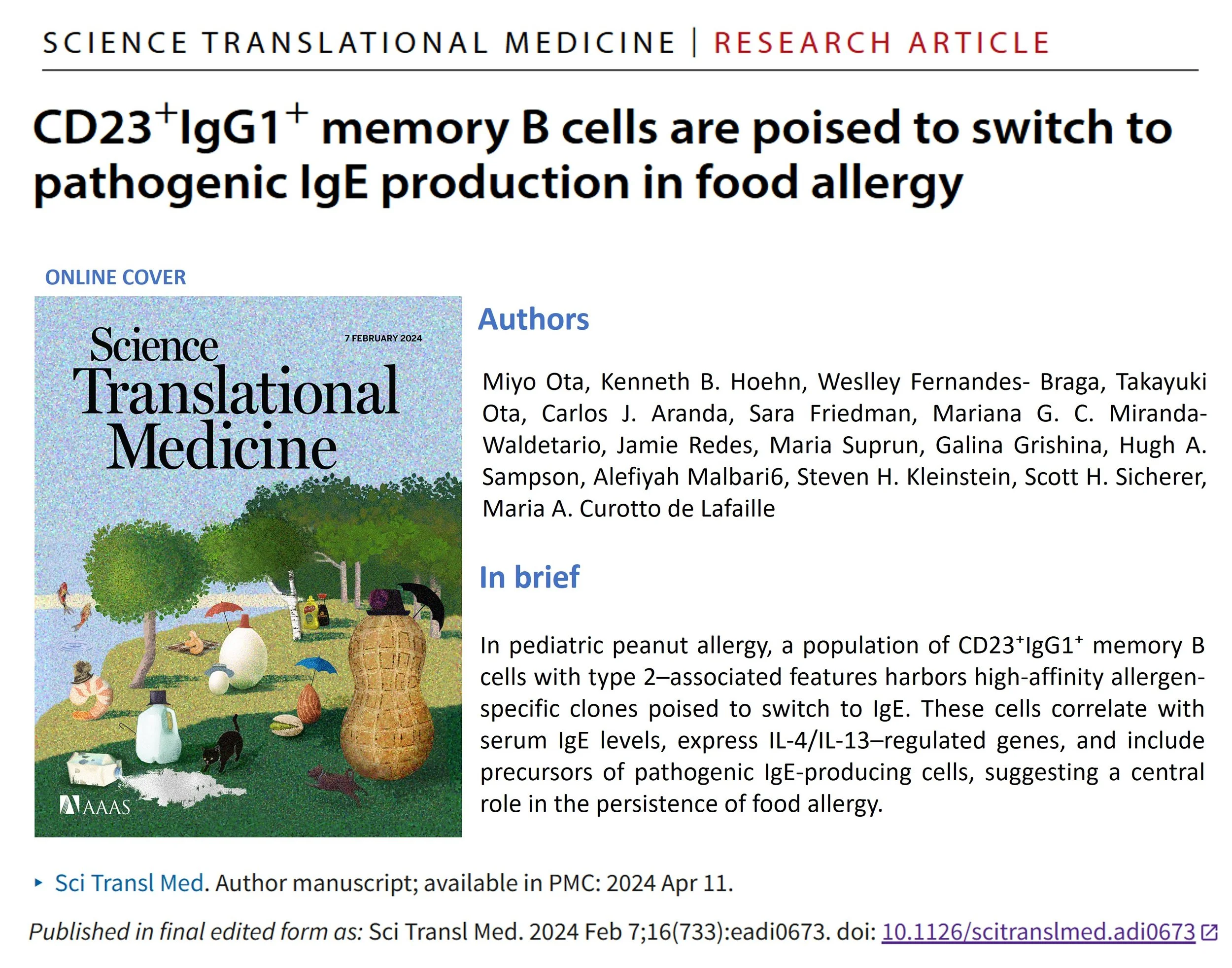
Immunology of Allergic Diseases
Our laboratory studies the immunological basis of allergic diseases, a diverse group of acute and chronic disorders characterized by dysregulated type 2 immune responses to environmental and food antigens. At the core of type 2 responses are IL-4 secreting CD4 T cells and IgE antibodies. IgE antibodies have the lowest serum concentration and the shortest half-life of all other immunoglobulin classes, and IgE-producing cells are rare. The effect of IgE antibodies is, however, powerful: by binding to IgE receptors on mast cells, and triggering mast cell degranulation, IgE antibodies are potent inducers of inflammation. We want to understand the factors that are involved in the generation and memory of IgE responses, and how responses to allergens evolve towards persistence or tolerance. Chronic allergic responses, as those in asthma, may lead to structural and functional alterations. We are interested in uncovering critical immune-tissue cells interaction that cause immunopathology in chronic allergic inflammation.
Check out our new manuscripts on IgE memory and Long-Lived IgE Plasma Cells











